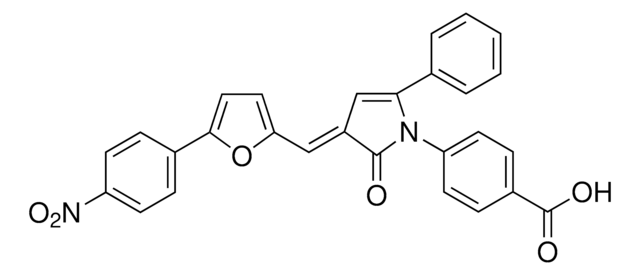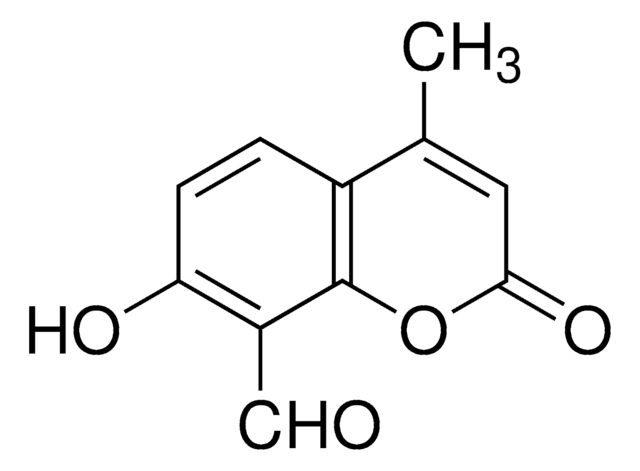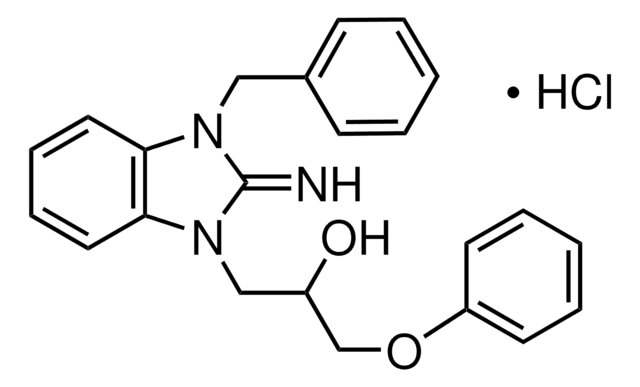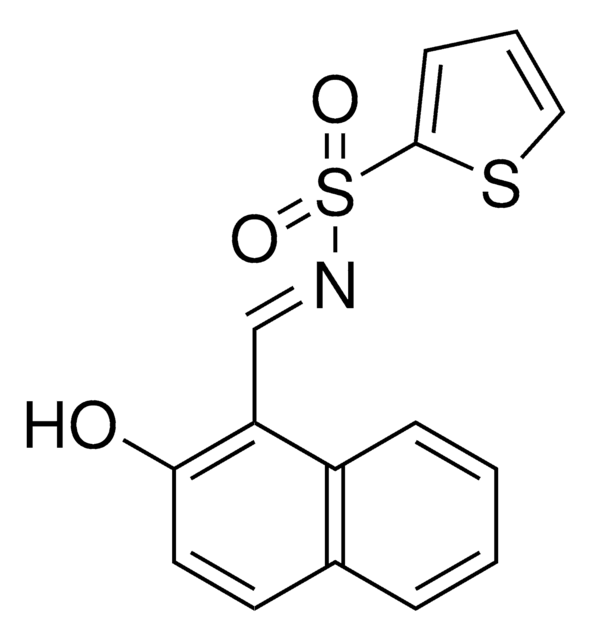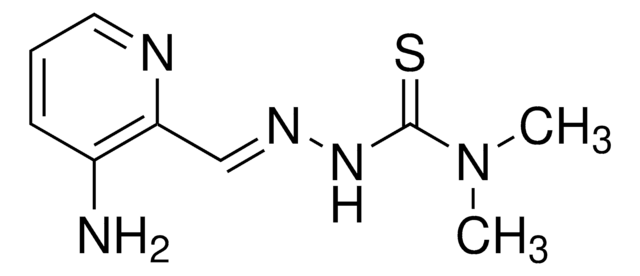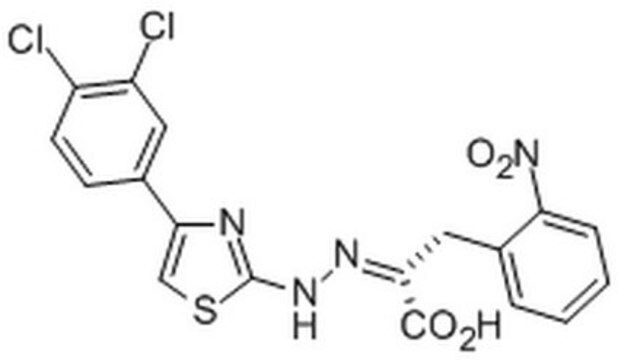SML0951
Salubrinal
≥98% (HPLC), powder, eIF2α dephosphorylation inhibitor
Sinónimos:
(2E)-3-Phenyl-N-[2,2,2-trichloro-1-[[(8-quinolinylamino)thioxomethyl]amino]ethyl] 2-propenamide
About This Item
Productos recomendados
Nombre del producto
Salubrinal, ≥98% (HPLC)
Nivel de calidad
Ensayo
≥98% (HPLC)
Formulario
powder
color
, White to brown to grey
solubilidad
DMSO: 20 mg/mL, clear
temp. de almacenamiento
−20°C
cadena SMILES
S=C(NC(NC(=O)\C=C\c3ccccc3)C(Cl)(Cl)Cl)Nc1c2ncccc2ccc1
InChI
1S/C21H17Cl3N4OS/c22-21(23,24)19(27-17(29)12-11-14-6-2-1-3-7-14)28-20(30)26-16-10-4-8-15-9-5-13-25-18(15)16/h1-13,19H,(H,27,29)(H2,26,28,30)/b12-11+
Clave InChI
LCOIAYJMPKXARU-VAWYXSNFSA-N
Aplicación
Acciones bioquímicas o fisiológicas
Características y beneficios
Palabra de señalización
Warning
Frases de peligro
Consejos de prudencia
Clasificaciones de peligro
Eye Irrit. 2 - Skin Irrit. 2 - STOT SE 3
Órganos de actuación
Respiratory system
Código de clase de almacenamiento
11 - Combustible Solids
Clase de riesgo para el agua (WGK)
WGK 3
Punto de inflamabilidad (°F)
Not applicable
Punto de inflamabilidad (°C)
Not applicable
Elija entre una de las versiones más recientes:
¿Ya tiene este producto?
Encuentre la documentación para los productos que ha comprado recientemente en la Biblioteca de documentos.
Los clientes también vieron
Nuestro equipo de científicos tiene experiencia en todas las áreas de investigación: Ciencias de la vida, Ciencia de los materiales, Síntesis química, Cromatografía, Analítica y muchas otras.
Póngase en contacto con el Servicio técnico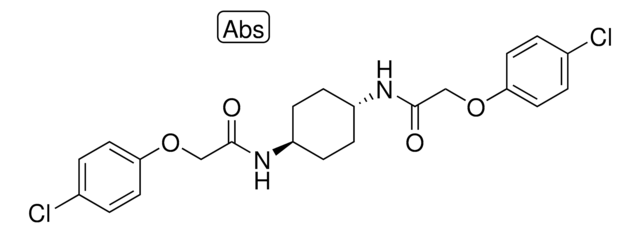
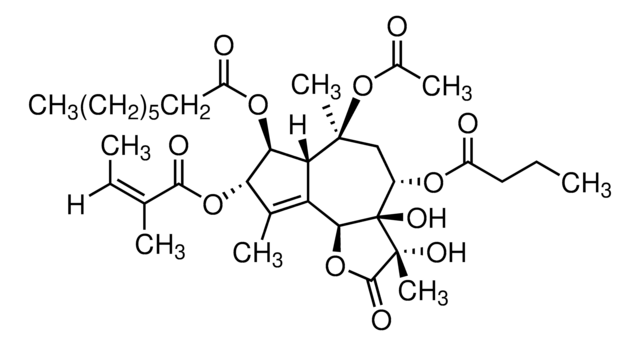
![PERK Inhibitor I, GSK2606414 GSK2606414 is a cell-permeable, highly potent inhibitor of EIF2AK3/PERK (IC₅₀ = 0.4 nM; [ATP] = 5 µM). Targets PERK in its inactive DFG conformation at the ATP-binding region.](/deepweb/assets/sigmaaldrich/product/structures/180/559/efa716dc-d5fe-4339-a6f0-0103084fc04a/640/efa716dc-d5fe-4339-a6f0-0103084fc04a.png)



